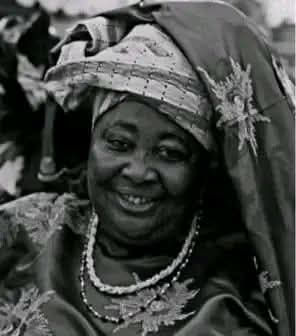Gambo Sawaba: A Fearless Trailblazer in Northern Nigeria’s Political, Women’s Rights History

Hajia Gambo Sawaba (15 February 1933 – October 2001) stands as one of the most formidable female activists in Nigeria’s modern history. A pioneering politician, philanthropist and advocate for women’s rights, she became a dominant voice for social justice in Northern Nigeria at a time when female participation in public life was rare and often discouraged.
Born Hajaratu Gambo in Zaria, she was the daughter of Isa Amartey Amarteifio, a Ghanaian migrant originally named Theophilus Wilcox, who settled in Nigeria in 1910 after graduating from the Ghana School of Survey. He sought employment with the Nigerian Railway Corporation. Her mother, Fatima Amarteifio, was a Nupe woman from Lavun in Niger State, descended from a lineage of notable warriors and blacksmiths. Fatima’s grandfather, Mamman Dazu, was widely acknowledged as a respected warrior and community figure.
Isa Amartey converted to Islam after relocating to Zaria, where he married Fatima, then a widow with three children. The couple had six children together, with Gambo born as the fifth. In accordance with Hausa tradition, a child born after twins is called “Gambo,” a name that would later eclipse her birth name, Hajaratu.
Gambo’s early education at the Native Authority Primary School in Tudun Wada was interrupted by the death of both parents—her father in 1943 and her mother in 1946. At the age of 13, she was married to Abubakar Garba Bello, a Second World War veteran who disappeared shortly after her first pregnancy. Subsequent marriages were equally troubled, including one to Hamidu Gusau that ended due to violent domestic conflicts.
From childhood, Gambo displayed a bold, unconventional character. She was known for defending the vulnerable, initiating street fights on behalf of the oppressed and even extending compassion to individuals with mental health challenges by offering them food, clothing and shelter. She often declared, “I have bought the fight from you,” before confronting aggressors on behalf of weaker victims.
Her formal entry into politics came at the age of 17, during a period when the Northern People’s Congress, backed by traditional rulers and colonial administrators, dominated regional politics. Despite this, Gambo aligned with the opposition Northern Elements Progressive Union (NEPU). She publicly campaigned against child marriage, forced labour and discriminatory practices toward women, while advocating western education for girls—positions considered radical for her time.
Her courage came to full display when she addressed a political gathering dominated by men, defying deep-seated cultural norms. She drew direct inspiration from leading nationalist and feminist Funmilayo Ransome-Kuti, whom she later visited in Abeokuta. Aminu Kano, another central figure in her political development, bestowed on her the name “Sawaba,” meaning “freedom” or “redemption,” after she became president-general of NEPU’s women’s wing. The name would become synonymous with her activism.
Throughout her career, Sawaba faced intense repression. She was imprisoned sixteen times for campaigning against child marriage, forced labour, unfair taxation and the systemic exclusion of women from public life. Her arrests became so routine that she reportedly maintained a personal blanket labeled “Prison Yard” to carry during detentions—an emblem of her defiance and resilience. Her record makes her widely regarded as the most frequently jailed woman in Nigerian political history.
Her legacy endures in public memory and institutional recognition. The Gambo Sawaba General Hospital in Kaduna and a female student hostel at Bayero University, Kano, stand as lasting tributes to her contributions. More importantly, she remains a symbol of courage, self-sacrifice and unwavering commitment to the rights and dignity of women in Northern Nigeria.
Hajia Gambo Sawaba’s life story continues to inspire generations, marking her as a central figure in the nation’s struggle for gender equality and social justice.
Culled from Notebook

